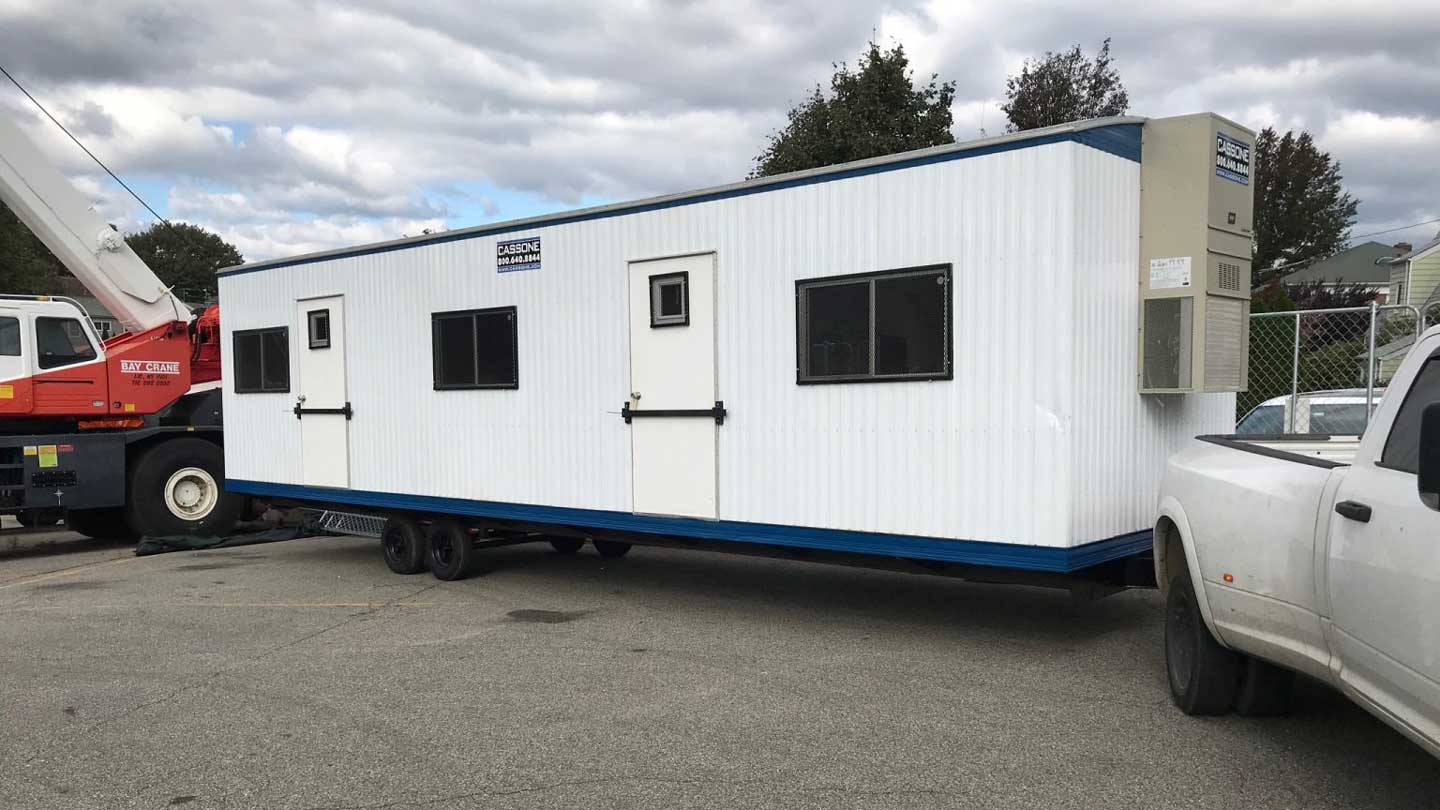When embarking on a construction project, temporary office trailers can be a cost-effective solution to meet the project’s administrative and logistical needs. However, choosing the right temporary construction office trailer can be overwhelming, as there are numerous factors to consider.
This post will explain how to choose temporary construction office trailers for your building project. The article covers office trailer kinds, features, and the most significant things to consider while choosing one.
The book also explains how construction project demands should affect your temporary office trailer decision. This article covers both basic and sophisticated workspaces for small and big construction sites. This information can help you choose a temporary construction office trailer.
How To Choose the Right Temporary Construction Office Trailer
Temporary construction office trailers are a vital part of construction projects. They provide a functional workspace for contractors, supervisors, and other personnel involved in the construction process.
When choosing a temporary construction office trailer, several factors must be considered, including the size and layout of the trailer, features and amenities, location and site requirements, budget considerations, and rental or purchase options.
Trailer Dimensions
A temporary construction office’s trailer size and layout are crucial. The trailer should fit all project staff. Consider the number of persons utilizing the office trailer, the equipment to be housed, and the sort of work. Trailer layout should facilitate workflow. The office trailer should offer meeting, storage, and administrative rooms.
Essentials
Trailer amenities are also significant. The trailer should include heating, air conditioning, lights, and outlets. Consider restrooms, kitchenettes, and break areas. Internet, security, and ADA compliance are optional.
Prerequisites
Office trailer placement and site needs should be considered. The trailer should be accessible to staff and equipment. Water damage may be prevented by leveling and draining the location. The location needs power, water, and sewage.
Budgeting
Temporary construction office trailers must be budgeted. Assess the expenditures of renting, buying, moving, and setting up the trailer. Rent or buy based on the rental time or estimated usage. Get the greatest value while fulfilling project needs.
Rent or Buy
Consider project duration and budget while renting or buying an office trailer. Renting is great for short-term projects or fast fixes. Renting gives you option to relocate the trailer. Long-term or customized projects may be cheaper with a trailer.
Features and Amenities Needed
When choosing a temporary construction office trailer, it is important to consider the features and amenities that are needed to ensure a comfortable and functional workspace. Some basic features and amenities are available in most trailers, while additional options may also be considered depending on the project’s requirements.
HVAC solutions that improve temperature and air quality, particularly in harsh weather, may be considered. The trailer might incorporate a restroom for lengthier jobs. A kitchenette or break room with a refrigerator, sink, and microwave may let employees take breaks and prepare meals.
Internet, security, and ADA compliance are further optional amenities that may make the trailer accessible to all staff. It’s crucial to assess the project’s needs and determine what facilities would make the construction crew’s workstation pleasant and productive.
Location and Site Requirements
When choosing a location for a temporary construction office trailer, it is important to consider several factors to ensure a safe and functional workspace for personnel. Location and site requirements should be carefully evaluated to ensure that the trailer is placed in a suitable area that meets zoning and permit requirements and has access to necessary utilities.
Zoning and permit requirements vary depending on the location and type of project. It is important to check local regulations and obtain any necessary permits before placing the trailer on the site. Failure to comply with zoning and permit requirements can result in fines and delays in the project.
The trailer needs water, power, and sewage. To minimize work disturbances, the site must have these utilities and appropriately link them to the trailer. The trailer should be situated on sturdy ground. Uneven terrain may cause trailer tipping and equipment damage.
Budget Considerations
Budget considerations are an important factor when choosing a temporary construction office trailer. Rental and buy have pros and cons. For short-term or budget-constrained undertakings, renting may be better than buying.
Size, features, and amenities affect temporary construction office trailer prices. Bigger trailers with greater amenities cost more. While choosing a trailer, consider project demands and budget.
Consider shipping, set-up, and maintenance expenses when evaluating supplier prices. To keep the trailer under budget, negotiate the rental or purchase price and look into financing.
Rental or Purchase Options
When considering a temporary construction office trailer, contractors must decide whether to rent or purchase the trailer. Both options have their own advantages and disadvantages that should be carefully evaluated before making a decision.
Renting a trailer may be more suitable for short-term projects or when budget constraints are a concern. Factors to consider when making this decision include the project’s specific needs, budget constraints, and timeline.
Contractors should evaluate the length of the project, the required features and amenities, and the availability of financing options before deciding whether to rent or purchase a trailer.
Conclusion
Choosing the right temporary construction office trailers is a critical decision for contractors involved in construction projects. Contractors must choose the proper temporary construction office trailer. This selection should take into account trailer size and layout, features and facilities, location and site requirements, budget, and rental or purchase alternatives.
To ensure the trailer fulfills the project’s goals and budget, carefully analyze these elements. Contractors must evaluate project duration, amenities, and funding choices.
Contractors may choose a temporary construction office trailer that satisfies regulatory, safety, and utility standards by following a guide. The correct temporary construction office trailer may help the project succeed by offering a safe and efficient workplace for staff and equipment.

Leave a Reply